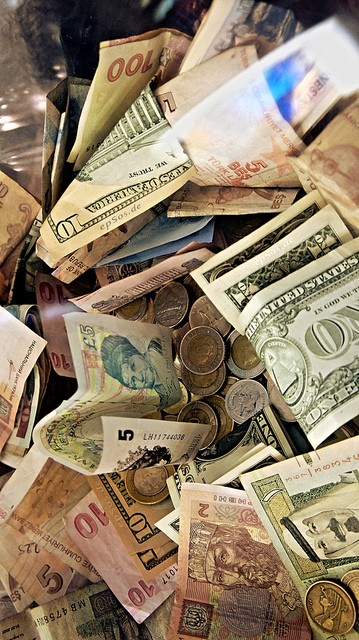What is Money?
 In order to grasp the importance of digital currency we should understand what ‘normal’ money is first.
In order to grasp the importance of digital currency we should understand what ‘normal’ money is first.
Let’s imagine that I grew up on a cattle farm in a time before money. My father was a very good cattle farmer. He learned how to fix many of the things that would break around the farm. He taught me how to fix things, and I got to be very good at fixing farm things. Because of the nature of our farm we always had plenty of beef to eat. However, my mother made the very best fried chicken, ever.
The problem with fried chicken is that beef is not included in the recipe. Mom’s Fried Chicken recipe, although top secret, is known to require chicken, eggs, milk, flour, and corn oil. The milk was easy. But if mom was going to make fried chicken, I needed to figure out how to get those other ingredients from the other farms around us.
Getting chickens turned out to be simple, because often the chicken farmers wanted a steak or hamburger, so we could trade a cow for chickens. As you know 1 cow is much larger than 1 chicken so we didn’t want to do a 1 for 1 trade. Instead, dad and the chicken farmer agreed that one cow was worth 50 chickens. 50 chickens is way more than we needed for the one meal so I asked the chicken farmer if he would give me 12 eggs and take back one chicken. It turns out that he didn’t need any more chickens, so I offered to fix one of the latches on his chicken coop in trade for 12 eggs. He agreed to that exchange and I took an hour in the afternoon to mend the door. Then I collected the eggs.
Now I needed to obtain some flour. Remembering our extra chickens (that we were not equipped to care for) I went to the wheat farmer and offered 5 chickens for 5 pounds of wheat flour. She did indeed want a chicken, but only one. Somebody else had just traded 4 chickens for some wheat and she could only care for 5 at a time. Secondly she only sold flour in 10 pound bags. I asked if she needed anything fixed. She did need the tractor engine overhauled, and offered 1 ton of flour for the trade. There was no way I had time for that job before dinner. I also didn’t need 2000 pounds of flour. She did need some corn however. Maybe I could get some extra corn from the corn farmers, I only needed about 10 pounds to make the corn oil. If I could get extra corn, then I could take that over to the wheat farm in trade for the flour I needed.
I went to the corn farm and offered beef, milk, chickens, or repair services in trade for 20 pounds of corn. They were vegan, and were also good at fixing things. I had nothing they needed, but they did need some wheat.
I clearly had a problem that needed fixing. I needed corn, and wheat. The corn farmer needed wheat. The wheat farmer needed corn.
Do you know what my solution was? I invented money!
I found some clay on our farm and shaped it into palm sized disks and stamped them with our farm brand, F4. I advertised in the local paper that if anybody brought me one of my disks at any time I would give them 1 chicken, or 5 lbs of wheat, or 1 hour of repair service, or 10 lbs of corn, or 12 eggs, or 1 gallon of milk, or 1/50 of a cow. Or, I would buy the commodities at the same rate, 1 disk for 1 chicken, etc. Now everybody could come to one place and get only the things they needed and they didn’t have to lug around a whole cow, or take 49 extra chickens in a trade. Eventually the locals stopped coming to me for everything and just used my disks for trading between themselves. As long as I promised to buy or sell my disks at the prices I put in the paper, everyone agreed on the value of my disks. My money made the community so much more efficient.
That is basically what money is. It is essentially something that is worthless, in terms of real human need. You can’t eat or drink my clay disks. You can’t wear my disks. You can’t live in my disks. If all you had in the world were my disks you would starve or freeze. What makes them work is that everybody simply agrees that they are worth something.